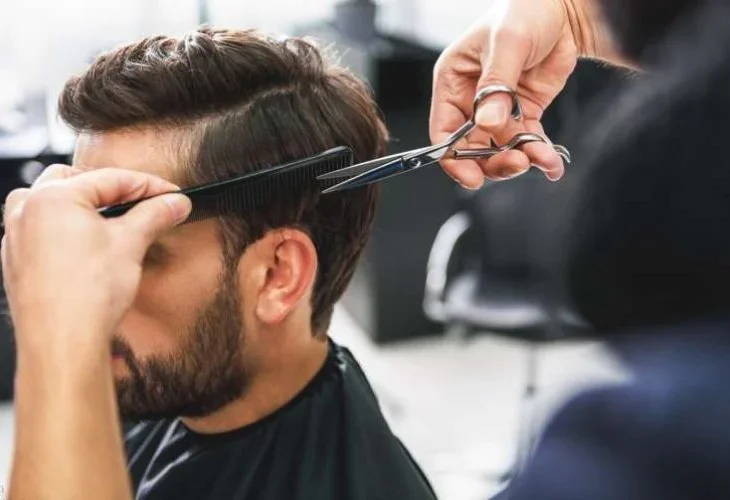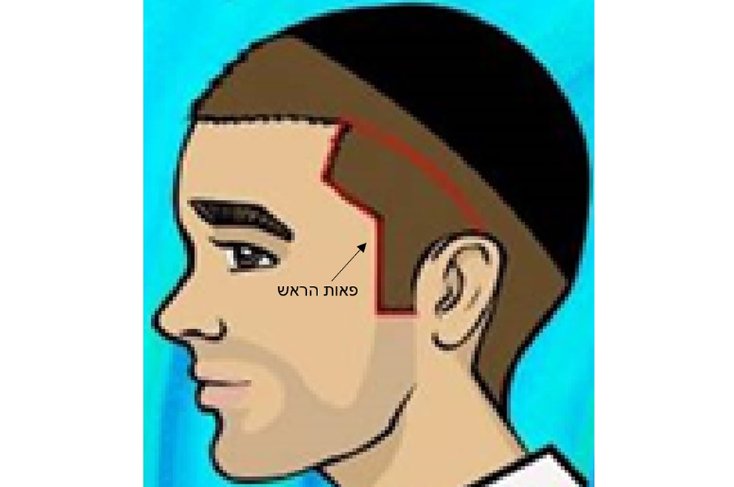Beginners Guide
The Beginner's Guide: Kosher Shaving and Haircut – How to Do It Right?
Can you shave your beard with a razor? Is it permissible to completely shave the area of the sideburns with an electric shaver?
 (Photo: shutterstock)
(Photo: shutterstock)1. The Prohibition on Shaving the Head. There are two severe prohibitions from the Torah that many violate unknowingly, even though they can easily be avoided. The Torah commands: 'You shall not round the corners of your heads' (Leviticus 19:27). This means there is a prohibition against shaving the hair at the sideburns, which would result in a rounded head without hair (forehead - temples - behind the ears - nape). Therefore, one should not completely shave the hair from the sides of the forehead to the bottom of the ear; a little hair must be left there. Any shaving, even with a machine, that doesn’t leave hair on the temples is forbidden. The length of hair that must be left in the area of the sideburns is at least half a centimeter.
According to the mystical teachings, the hair of the head and sideburns represents judgments. Negative actions and sins committed by a person cause the divine judgment to be stretched upon the person. But when there are hairs in the area of the sideburns, this judgment moves downwards and connects with the roots in the beard area, which represents kindness. When judgments connect with the beard, they turn into kindness. When one violates the commandment 'You shall not round the corners of your heads,' and the sideburns are left without hair, the judgment remains on the person.

2. The Prohibition on Destroying the Beard. Another prohibition is shaving the beard with a razor, as stated later in the same verse: 'Neither shall you mar the corners of your beard.' Shaving with a razor means shaving with a razor blade or any other type of knife (including through an electric shaver) that goes directly on the skin and rubs against the skin, thereby penetrating the follicles and removing the hair with the roots. For the hair on the head, a razor can be used except for the area of the sideburns (one must know precisely the area of the sideburns and their boundaries), but the beard should not be shaved with a razor.
Most electric shavers on the market do not meet halachic requirements, and it is likely that most of them involve a Torah prohibition of shaving with a razor [the forbidden shaving is when it harms the hair roots]. It is permissible to use an electric shaver with a kosher certification or a machine that leaves a genuine stubble. Rabbi Avraham Yosef Schlit"a explained in his lesson that one should not press the shaver and haircut machine during shaving.
By purchasing a kosher electric shaver with a fine certification from leading Torah authorities, where there is a clear separation between the blades and the skin (and ideally to leave at least a little beard, even the thinnest layer), one can easily avoid this prohibition of shaving the beard with a razor. However, as mentioned above, it is mandatory to leave in the area of the sideburns a hair length of at least half a centimeter.
According to the mystical teachings, the hair of the beard is essentially a covering for channels of spiritual abundance. According to Kabbalah, when a person shaves with a razor and uproots the roots of his beard’s hair, he is essentially uprooting the roots of his spiritual abundance channels. This action might harm the person’s livelihood, lead him to sadness, and damage the abundance intended for him. Because of shaving the beard with a razor, the personal abundance of the person may be harmed, as well as the abundance of his household that depends on him.
3. Dyeing Hair for Men. There is a prohibition for a man to cut his hair in a woman’s hairstyle, and similarly, a man should not dye his hair, as this is considered a woman’s act, as the Torah commands 'A man shall not wear a woman’s garment' (Deuteronomy 22:5), which includes anything related to women. Therefore, men should not dye white hair, except when it is necessary, like when it might interfere with matchmaking and finding a partner. However, for beauty purposes alone, it is not permitted.
The Weekly Challenge
Transition to kosher shaving and haircuts.

